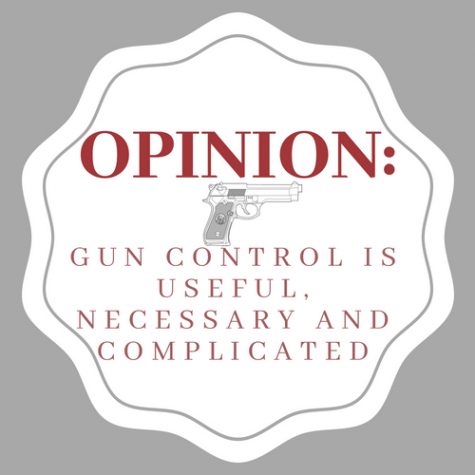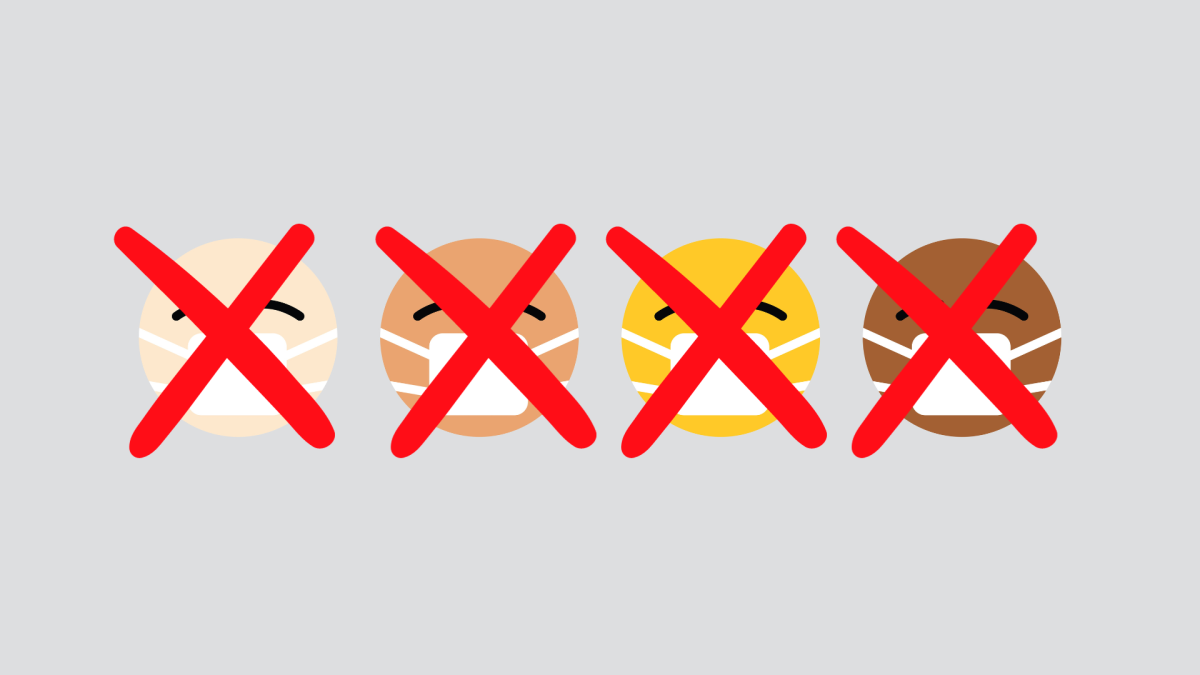
Gun control is an extremely touchy subject. It is perhaps the most divisive topic in the U.S. where there seems to be no middle ground. It is a difficult conversation to have but, as time goes by, it’s becoming necessary. Let’s understand this complex topic.
According to Merriam-Webster, gun control is defined as “regulation of the selling, owning and use of guns.” It includes which guns are allowed in society, who gets to purchase them, how to carry and use them and so on.
Let’s be clear: gun control is neither gun abolition nor gun confiscation. No one is trying to take away your guns, and no one is suggesting a ban in the U.S., either. With that said, it’s important to note that gun control encompasses all rules and regulations, and they may actually be beneficial for society. Despite research and findings, this is where opinions are strongly divided, though there is a potential for common ground.
The support for more and stricter gun laws stems from the increasing amount of mass shootings in the country. The U.S., unfortunately, has this problem more than any other country in the developed world. The U.S. also has the most guns per capita than any other country, as well as 31 percent of global mass shooters. Therefore, there are legitimate concerns about gun ownership in this country.
Well, if there are already so many gun laws and they clearly don’t work, why bother having them? That’s a dangerous logic because it implies that laws simply do not work so, in turn, it dismisses having any at all. When considering gun laws, one must at least know about their composition and what causes their success or failure. For instance, loopholes and lack of enforcement are common issues.
Let’s say that laws work, such as the unrenewed ban on assault rifles and high-capacity magazines from 1994 to 2004, or the “red flag” laws in Indiana that temporarily seized guns for suicide concerns. What about places like Chicago? Illinois used to have some of the strictest gun laws in the nation, but this changed in 2010. It’s been found that most guns fueling violence in Chicago come from other states with less regulation on private sellers. It is, frankly, a bit tiring to use Chicago as a political device to refute any law creation, reform or enforcement.
What about gun culture? Yes, in the U.S. (especially in rural areas), there is a culture around gun ownership. In the U.S., it can be argued that gun culture is closely related to militarism, power displays and many (what-if) safety scenarios. People cite lack of proper or fast policing, as well as family/personal safety as reasons for that ownership, and it’s perfectly understandable.
It’s also related to non-defensive, non-violent activities such as hunting.
Another country with an interesting gun culture is Switzerland, where gun ownership is rooted in patriotism (in the army and the police). It is strictly regulated, and ownership is decreasing. Perhaps a re-evaluation of U.S. gun culture is needed to see why violence seems to be part of it.
When it comes to gun control, let’s acknowledge the other unheard communities. Before the Parkland shooting, survivors were not taken seriously. Black inner-city activists and disabled survivors haven’t been heard or have been blatantly dismissed from the conversation. Gun control discussions must include them as well, because of their first-hand experiences on the matter.
When taking all of this information into account, it becomes overwhelmingly difficult to decide on a universal way to treat gun ownership and usage. Gun control should be enacted in the same complex way it exists. Many factors (educational, socioeconomic, cultural, etc.) fuel gun violence, and they should all be addressed. Keep in mind that states and cities can take a local approach, and certain sensible laws should be federal, such as background checks and waiting periods.
It really depends on who you ask, but gun regulation seems necessary. Again, no one is saying that there should be zero guns. Violence is real for many people, and each person experiences the U.S. through a different lens.
However, many are demanding that gun acquisition should be regulated and monitored for safety reasons, and their voices matter, too. In the end, everyone worries about gun violence, so everyone should work together for national safety.
—
For more information or news tips, or if you see an error in this story or have any compliments or concerns, contact editor@unfspinnaker.com
















ad-lib | Jul 27, 2018 at 6:47 pm
paragraph three: “Let’s be clear: gun control is neither gun abolition nor gun confiscation. No one is trying to take away your guns, and no one is suggesting a ban in the U.S., either.”
paragraph six: “Let’s say that laws work, such as the unrenewed ban on assault rifles and high-capacity magazines from 1994 to 2004-”
…this right here is a prime example of the bans that ARE regularly suggested. and, you know, enacted in various states. see also: confiscation in states like CA.
part of why there’s no “conversation” on the topic is that pro-gun people see anti-gun people as negotiating in bad faith. saying no one wants a ban or to confiscate guns when there are plenty of politicians, talking heads and random people who DO call for those things is part of the problem.
Logan | Jul 27, 2018 at 12:45 pm
It’s unconstitutional so we’ll never allow it. So if you don’t like guns don’t buy one. The rest of us will do as we please and no one else has an opinion on it.
Drew Rinella | Jul 27, 2018 at 12:22 pm
No one, except for this extremely powerful and highly regarded politician who routinely submits large scale firearm prohibition bills along with scores of co-sponsors:
“If I could have gotten 51 votes in the Senate of the United States for an outright ban, picking up every one of them, Mr. and Mrs. America, turn them all in, I would have done it.” – Dianne Feinstein
David Cordon | Jul 27, 2018 at 10:51 am
“most divisive topic in the U.S.” Thing is this issue is not about guns at all. It is about freedom. It is about the law. Our Constitution, the highest law of the land says in part, “the right of the people to keep and bear arms shall not be infringed”. This law that supersedes all other laws recognizes our natural right, this is not a right that is given to us by the constitution. The law itself says this natural right shall not be infringed. What part of that do you not understand?
I have read maybe hundreds of proposed gun restrictions. One thing they all have in common is that they infringe on my natural right as a human being. One thing they all lack is any means to prevent crimes or atrocities that sick individuals commit with guns. If gun control advocates would spend as much money and energy in combating violence instead of attacking gun owners we might achieve a safer society.
Mike Brewster | Jul 27, 2018 at 9:42 am
This author has a young persons understanding and knowledge of the issue and also should takes a course in basic research and reading comprehension.
In five or ten years when you have a basic understanding of the issues, please come back and we’ll talk.
Gene Ralno | Jul 26, 2018 at 2:11 pm
Let’s be clear Mr. Torchon. You’re wrong. Perhaps it’s due to ignorance or perhaps you’re just another liberal liar. Your ilk have stated clearly, they’d abolish guns if there was any possibility. They’d confiscate every privately owned arm in the nation if possible. Only leftist cowards refuse to admit their ultimate goal.
Further, support for more and stricter gun laws is a myth based on push polls that only claim mass shootings are increasing. Fact is, the incidence of mass shootings remains flat and has not increased for decades. Mass shootings remain rare and school shootings remain extremely rare.
Let’s be clear about another item. Arming oneself is a civil right affirmed by a special amendment in the Constitution. If you wish not to own a firearm, don’t buy one. If I want one, I’ll buy one and your opinion doesn’t mean squat.
I’ll not address the remainder of your propaganda piece because I haven’t the time. Instead, I’ll close my comment by saying every time you or one of your leftist friends writes such tripe, it pushes our great nation closer to a revolution. And if it should happen, guns are the instruments that will balance the political scales. You, your comrades, felons, terrorists, drug dealers and illegal aliens will be washed out like so much jetsam.
Henry Zee | Jul 26, 2018 at 6:17 pm
“No one is trying to take away your guns, and no one is suggesting a ban in the U.S., either.”—Tamlynn Torchon
Tell that to all the people over the years who have been advocating taking away [my] guns, fool:
https://en.m.wikipedia.org/wiki/U.S._National_Commission_on_the_Causes_and_Prevention_of_Violence#Firearms_policy
https://en.m.wikipedia.org/wiki/Brady_Campaign
https://www.nytimes.com/1991/07/31/nyregion/assault-weapon-ban-passes.html
http://community.seattletimes.nwsource.com/archive/?date=19920831&slug=1510366
https://en.m.wikipedia.org/wiki/Political_positions_of_Dianne_Feinstein#Gun_politics
http://www.washingtonpost.com/wp-dyn/content/article/2005/09/08/AR2005090802089.html
http://www.nytimes.com/2005/09/09/us/nationalspecial/police-begin-seizing-guns-of-civilians.html
https://www.nytimes.com/2015/12/05/opinion/end-the-gun-epidemic-in-america.html
http://www.latimes.com/opinion/opinion-la/la-ol-gun-control-ban-homicides-suicides-20140528-story.html
https://newrepublic.com/article/125498/its-time-ban-guns-yes-them
http://theweek.com/articles/729108/ban-guns
https://www.commondreams.org/views/2017/11/12/hand-over-your-weapons#
https://www.usatoday.com/story/opinion/2018/05/03/ban-assault-weapons-buy-them-back-prosecute-offenders-column/570590002/